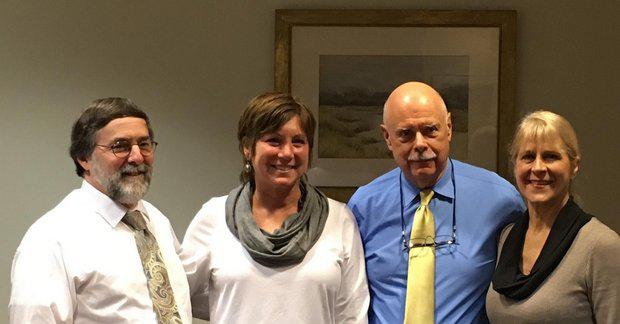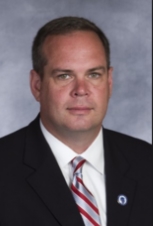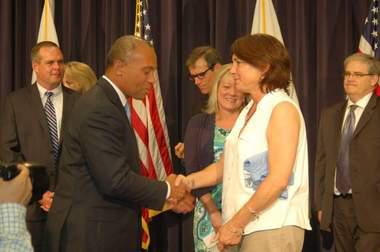|
One woman's journey out of child sex abuse helps reform Massachusetts child sex crimes law
By Ivey Dejesus
A highway exit sign triggered the flood of memories. Rosanne Sliney was 24 years old when the sight of the exit sign unleashed a tide of memories long repressed: Her uncle sexually abusing her in his car. She was 5. He was her mother's brother, a beloved member of a large Italian-American family from Massachusetts, her godfather. That one trigger brought back the years of abuse, the pain, shame and guilt. Her uncle did unspeakable things to the young girl – in his home, his car, his business. Rumors long circulated among her relatives, but no adult – not family member, teacher or coach – sounded the alarm. Sliney endured the horror in silence for nearly 10 years, retreating from her school studies and the conventions of teen life. The flood of memories prompted Sliney to confront her predator. He in turn sent her a letter of apology filled with anguished remorse for what he had done. He had mistaken "sex" for love, he wrote, and had asked God for forgiveness. Nearly two decades would pass before Sliney worked up the nerve to take the next step: In 2012 she filed a lawsuit against him. Her decision would splinter her family, but she could have little imagined that it would tip the effort to overhaul Massachusetts law. When it was all said and done, her story catapulted to triumph a movement launched a decade before in the wake of the stunning child sex abuse case out of the Boston Archdiocese. Fueled by the narrative of her story, the movement to reform the state's statute of limitations would, at the 11th hour, bring to the negotiating table the very same powerful forces that for years had blocked reform. Sliney's story played out hundreds of miles away, but the trajectory of her story – and the efforts of victims advocates who long pushed for reform in her state – parallel the efforts mounted in Pennsylvania to reform the state's child sex crime laws. "There should be no statute of limitation when a child is sexually abused by a priest, a family member, a coach, a teacher, someone you know and trust," Sliney said recently from her home in Burlington. [MASS.?] "It affects the mind body and soul. Being sexually molested and abused is like murder of the soul. There should be no statute." In her lawsuit, Sliney alleged she was sexually abused hundreds of times by her uncle, Domenic Previte Jr., as a child, starting when she was 5 years old in 1968 and continuing until she was 14 years old. Because her legal rights had expired, the judge dismissed her case. But Sliney appealed and joined the effort to get the law changed. "I felt like the state of Massachusetts was like my family," Sliney said. "They all were ignoring the fact that I'm suffering. I'm in constant physical pain. constant nightmare. I have PTSD, anxiety, eating disorders. I got thrown out of court and said, 'Wow they are turning their heads on me as well ... just like everyone else in my life. No one protected me ... and now my state wasn't protecting me." Sliney was up again the powerful force of the Massachusetts Catholic Conference, which similar to the Pennsylvania Catholic Conference is the legislative branch of the church in the state, and as such, a powerful lobbying force. The church has fought fiercely to fend off reform to child sex laws across the country that would it leave it open to a tide of lawsuits. The archdiocese in 2002 became the epicenter of the worldwide clergy sex abuse scandal with a scandal — first reported by The Boston Globe — that involved more than 1,100 victims and nearly 250 priests. The scandal cost the archdiocese about $150 million in damages from civil lawsuits. "Clearly the Archdiocese of Boston was opposed to this, although they were never public about it," said Jetta Bernier, executive director of Massachusetts Citizens for Children, an advocacy group that had for more than a decade fought for reform. "They were powerful behind the scenes. They kept blocking all the efforts." Similarly, the effort to reform the laws in Pennsylvania got started in the wake of an identical clergy sex abuse scandal out of the Archdiocese of Philadelphia in the early 2000s. The Jerry Sandusky child sex abuse scandal further fueled the effort, but the grand jury report out of an investigation into the Altoona-Johnstown Diocese in March put the effort of advocates on the fast track. In Boston — as in Pennsylvania — efforts to overhaul the law went nowhere for years. "There was a lot of support for the bills in the Legislature," said Massachusetts Rep. John Lawn, a Democrat whose district includes Sliney's hometown. "It seemed crazy that it wasn't going anywhere, but when things would move forward everyone felt the insurance companies and the Catholic Church would put pressure to halt bill." Lawn got behind Sliney's effort to push for reform, becoming the lead advocate in the House and recruiting other key legislators to the cause. In the Senate, the effort was widely led by Sen. William Brownsberger. For Lawn, the effort was so emotional at times, he said, he once nearly got into an altercation with former House chairman of the Judiciary Committee, Rep. Eugene O'Flaherty, who he said had the interests of the church. "We almost got into a fist fight. It was really emotional," Lawn said. "It became a big story." O'Flaherty in 2012 told a reporter that statutes of limitations ensure that evidence and memories are fresh. "Statutes of limitations have a purpose,'' he said. For the better part of 2013, the bill made its way up through the chambers. Then, at the last minute, the issue of its constitutionality was raised, casting concerns from advocates that, once again, the church was about to triumph in defeating the bill. Lawn realized the only way to protect the bill was to go directly to "the elephant in the room." He and sent a letter to Cardinal Sean O'Malley, one of the most powerful officials in the 1.2 billion-member Catholic Church and confidant of Pope Francis. O'Malley had been on the short list to succeed Pope Benedict XVI after his surprise resignation in 2013. Lawn asked to meet with him. O'Malley was skeptical but agreed. "He thought we were trying to come after the church," Lawn said. Lawn was received by a cadre of archdiocese attorneys. But they quickly realized that Lawn was being reasonable. That's when O'Malley walked in. More private meetings would follow. At the same time, Pope Francis convened a Vatican commission dedicated to protecting children from abuse and to caring for victims. It was the first time the church had launched a comprehensive effort to address the clergy sex abuse scandal, which became a global crisis threatening the church in the wake of the Boston scandal. He appointed O'Malley to head the commission. O'Malley received a letter signed by approximately 80 advocates — and led by Massachusetts Citizens for Children — appealing for his support for reform. In the end, the cardinal got behind the legislation, and almost overnight, House Bill 1455 and Senate Bill 633 passed with unanimous votes. "I really actually credit the church working with us," Lawn said. "Without their support I don't think it ever would have gone anywhere. And that's why it didn't go anywhere for 10 to 12 years." The new law extended the statute of limitations for child sexual abuse lawsuits from three years to 35. It also applied the provisions retroactively to cases against the alleged perpetrator of the abuse, but not for defendants who may have "negligently supervised" the abuser. The law did not revive expired criminal statute of limitations (which the U.S. Supreme Court has ruled unconstitutional.) The one concession advocates were willing to make was a window measure that would have opened the civil courts to all past victims for a period of time. "So many bills that were filed had so many different aspects to it. We had to break it down and hit it small, get some things passed, " Lawn said. "It's a balance. We would have loved the window but we realized that wasn't going to happen. We took what we could get. That was progress." In 2014, after the Massachusetts Legislature unanimously passed the reform law, Previte (Sliney's perpetrator) filed a claim asserting that the law was unconstitutional. The Massachusetts Supreme Judicial Court in December voted in Sliney's favor, affirming the constitutionality of the law. "What will it do for me?" Sliney asked. "Nothing. I can never get back what I lost. I lost my childhood. I lost my adulthood. My life was ruined. I never married. Never had children." Writing for the court, Justice Margot Botsford wrote that expanded statute of limitations "appears to be tied directly to the compelling legislative purpose underlying the act, and in particular, the apparent recognition that in many cases, victims of child abuse are not able to appreciate the extent or the cause of harm they experience as a result of sexual abuse perpetrated on them for many years after the abuse has ended." Carmen L. Durso, Sliney's attorney, argues that statute of limitations are an archaic legal tool put into effect at a time when people had limited knowledge. "When you are talking about sexual abuse, you are talking about something that is the perfect crime because the person committing the crime is usually at the same time creating the situation where the victim can't do anything about it," he said. "When they are capable of doing something, then the statute of limitations bars them. That's an argument that has resonated with the courts — the idea that there is a difference between making retroactive statute of limitations for things that were clearly a settled matter and between a situation where a person can't begin to address the problem until some point in their life." Durso, who has represented scores of victims out of the Boston Archdiocese scandal, said that without Sliney, the old law in Massachusetts would have conceivably remained in place. All of them — Durso, Sliney, Lawn and Bernier — said advocates in Pennsylvania should look to Beacon Hill for guidance and for fortitude in their fight. "In a great cause there are no defeats, only delayed victories," Durso said. "They have to keep at it until they get it and they will. Eventually someone who was abused will go talk to everybody who stands in the way and say how can you do this to me? When they find out it's someone they know ... that will change minds. That's what it takes." Bernier advises two options: going for broke or negotiations. She is confident reason will prevail in the face of the most formidable opponent. "I've often said why can't other states do what we did? Reach out," she said. "Don't continue to be adversary. Find common ground. Figure out what can be negotiated and consider that solution. If we can do it in Massachusetts with the archdiocese being so powerful and Cardinal Sean O'Malley, the right hand of the pope... if we were able to bring him to table, why can't New York or Pennsylvania also follow suit and sit down and negotiate. If we hadn't asked for that meeting, we'd still be fighting it out." New York ended its 2016 legislative session in late June without acting on legislation to help child sex abuse survivors. In the wake of the Legislature's failure to take up the Child Victims Act, the head of the Catholic League said victims advocates were out to "rape" the Catholic Church over the issue of child sex abuse. The Pennsylvania House of Representatives in April by a 180-15 vote passed House Bill 1947, legislation that would overhaul the child sex crime laws in the state. A few weeks ago, following little public debate of the bill in the Senate, that chamber voted 49-0 to approve the bill – but first it stripped the retroactive measure away. Advocates hail the bill for its aggressive provisions for future crimes, but bemoan that it provides no relief for victims of past abuse for whom the civil statute of limitations have expired. The amended bill returned to the House for a concurrence vote, but the House will not take it up until the fall. Now 52, Sliney has one more year to file under the provisions of her state's statute of limitations, which for civil action expire at age 53. She is preparing to go to court. "I'll fight until I can't fight anymore and let me tell you, it's hard to get through every day," she said. "I suffer every day of my life." Contact: idejesus@pennlive.com
|
.
Any original material on these pages is copyright © BishopAccountability.org 2004. Reproduce freely with attribution.




